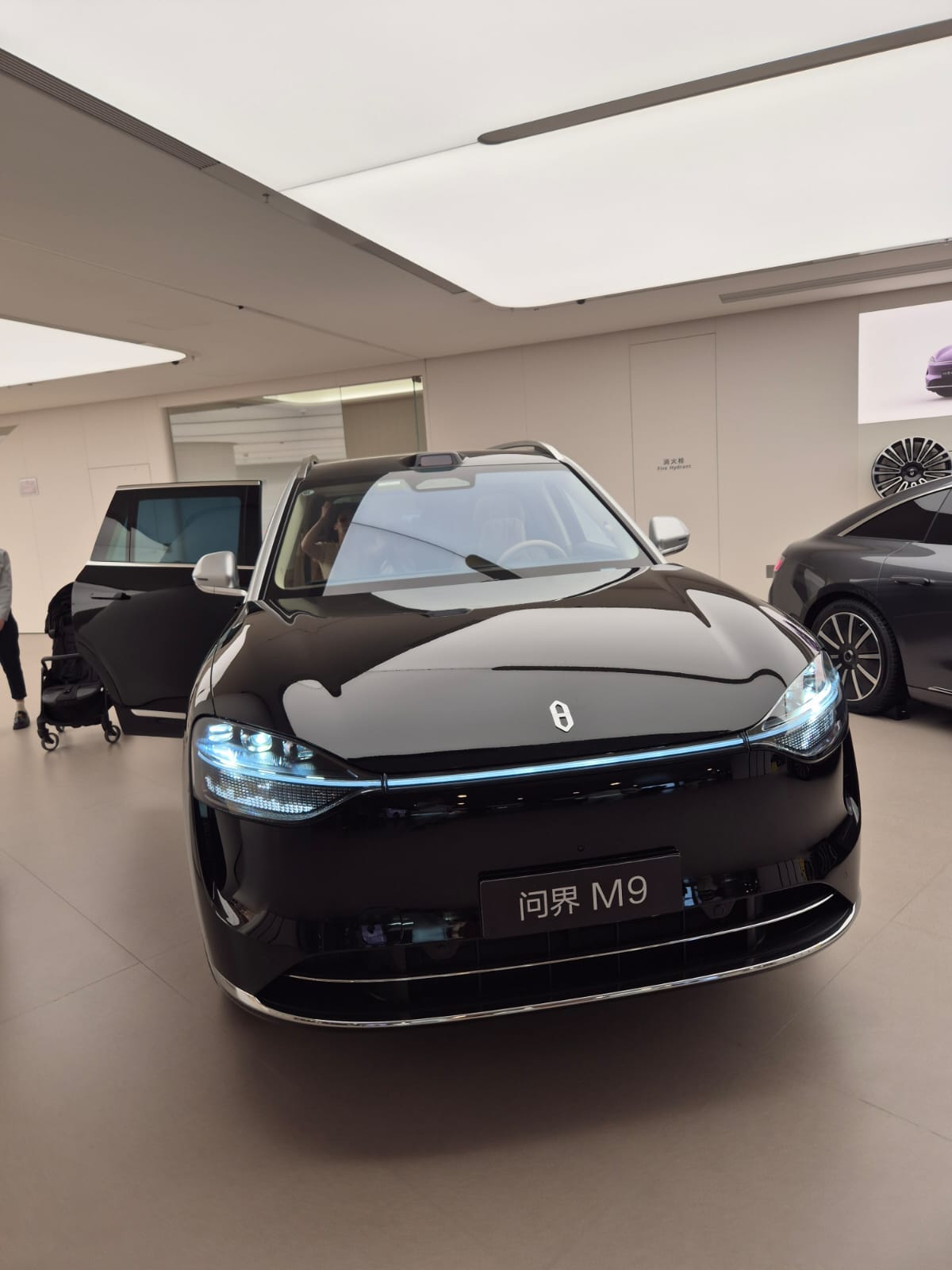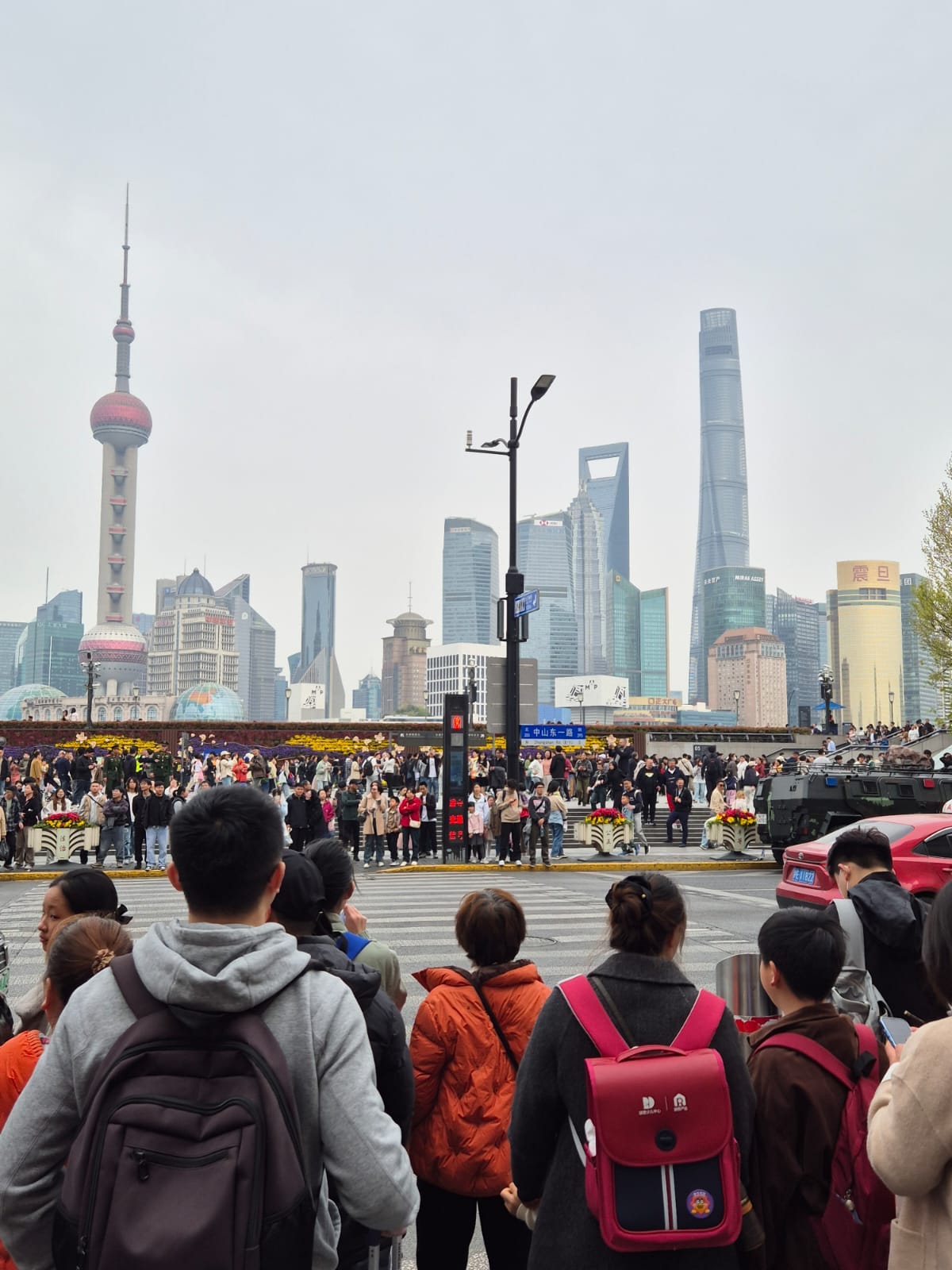An Exciting Journey to China: Why China will win over most of the countries including US and Indonesia
Strong Government combined with work ethics will bring China more advanced. Therefore, forget Indonesia Emas 2045
I hope you’re all enjoying a splendid weekend!
I’m excited to share that I’ve just returned from a breathtaking 8-day adventure in the shimmering metropolis of Shanghai, China — my inaugural visit to this dynamic and fast-evolving nation, intriguingly close to Indonesia! Our family embarked on this trip brimming with anticipation, convinced that we are witnessing China on the cusp of eclipsing the U.S. in numerous realms, particularly during our lifetimes and for the future of our children. Here are some compelling insights we gleaned throughout our travels, illustrating both the challenges Indonesia faces and the vast opportunities on the horizon.
1) A Flourishing EV Ecosystem
Upon stepping off the plane at PVG, we were immediately struck by a vibrant tapestry of electric vehicles (EVs) whizzing by, underscoring a revolutionary transformation — with nearly half of the cars on the road being electric! The gleaming silhouettes of innovative brands like Tesla, BYD, Zeekr, Huawei, Xiaopeng, and Lynk & Co. graced the streets, alongside several newcomers I hadn’t even encountered back in Jakarta. China’s impressive drive towards EV adoption is a testament to the power of decisive political will, resulting in cleaner air and a move toward independence from global automotive giants.
In just a few years, China has become a leader in electric vehicles (EVs). The country has removed over 6.5 million traditional cars from the roads. New EVs now make up more than 50% of vehicle sales for several months in a row! Last year, China had an impressive 11 million EV sales, a huge increase from just 0.32% market share in 2014. Today, EVs are clearly becoming a vital part of China’s automotive industry.
The government's unwavering commitment to establishing a robust charging infrastructure has been pivotal in this transformation. Since the ambitious guidelines rolled out in 2015, the groundwork for an extensive network of charging stations has been laid. Between January and September 2024 alone, we witnessed a staggering 49.6% year-on-year surge in charging stations, culminating in over 11.4 million across the nation!
Indonesia is just beginning its journey in the electric vehicle (EV) market. The good news is that there is a lot of potential for growth! BYD and Denza recently sold about 8,242 units in one year, beating well-known brands like Hyundai and Wuling. If we quickly improve charging infrastructure, we could see a big change here. As more people learn about EVs and the market develops, traditional gas-powered cars may soon face tough competition.
Tesla, too, may find itself navigating a tricky terrain in China — with their unmistakable presence everywhere we roamed, the evolving trade landscape suggests an intriguing battle ahead in the market.
(Xiaomi SU7 on Highway)
(Huawei M9 in Huawei store)
2) A Cashless Society in Full Bloom
I have a deep admiration for China, especially for its seamless cashless society where Alipay and WeChat Pay dominate like trusted allies. The widespread adoption of these payment platforms is truly impressive! Even the smallest street vendors and local markets have embraced digital transactions, resulting in a remarkable blend of convenience and efficiency. The idea of a super app that consolidates various payment processes simplifies transactions, enabling businesses to excel in serving their customers without the challenges of handling cash!
In contrast, Indonesia still has a remarkable journey ahead toward establishing a cohesive digital financial ecosystem. While numerous innovative apps are in play, they grapple with the challenge of unifying their services under one umbrella. I encourage visionary financial services aiming to replicate Alipay’s tremendous success to explore avenues of becoming aggregators, offering a comprehensive suite of services tailored to merchants.
With QRIS now omnipresent in Indonesia, our next objective should be to simplify payment processes significantly. The ideal strategy would involve crafting a seamless integration between QRIS, inventory systems, and Point of Sale (POS) technology — all bundled within a single, user-friendly app.
I believe that banks like Mandiri, OCBC, or CIMB possess the nimbleness to forge ahead in this domain, presenting a competitive edge over more established giants like BCA, who might face challenges in adapting swiftly to this rapid evolution.
3) Strong work ethics started from early education
During our visit to China, it was coicidently clashed with China's Chin Ming Holiday when they pay respect to elder. The holiday was crowded with people and student as they took small break. However, the most intriguing fact was not that the holiday was crowded but why Chinese people appreciate a break. My guide told me that for student, usually they still go to school on Sunday/ Saturday to replace their public holiday that fall in weekdays. Therefore, when there is no class on weekend, they usually dont take it for granted and it is an opportunity for their parents to bring their children for shopping or sightseeing. Compare to Indonesia where we have too many holidays and always extend in into weekend without any replacement days. For example, this idul fitri when the Ministry of education gave 1 week holiday at the early weeks and 2 week holidays before Lebaran. So in terms of relative productivity, we basically already lost since the early education therefore dont complain if we are lost to China and we could not make it back.
(the Bund crossing during the holidays)
(mini soo situation during holidays)
Before I go on too long, let's conclude my three key observations here, and I will continue the observations in the next post. Have a great weekend, everyone!
Take care!








